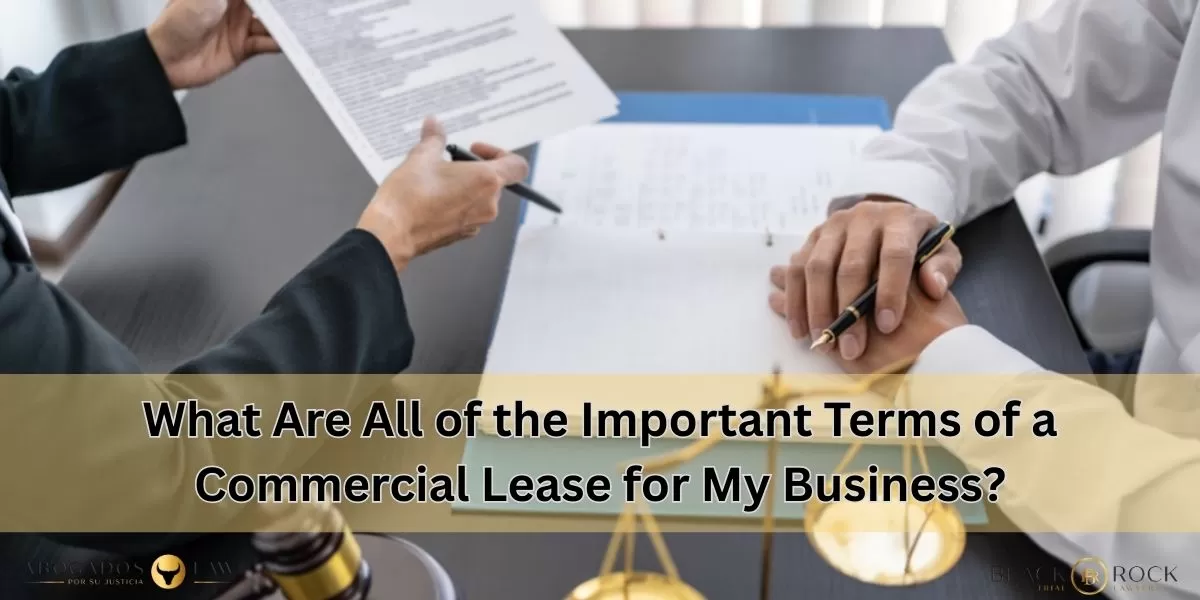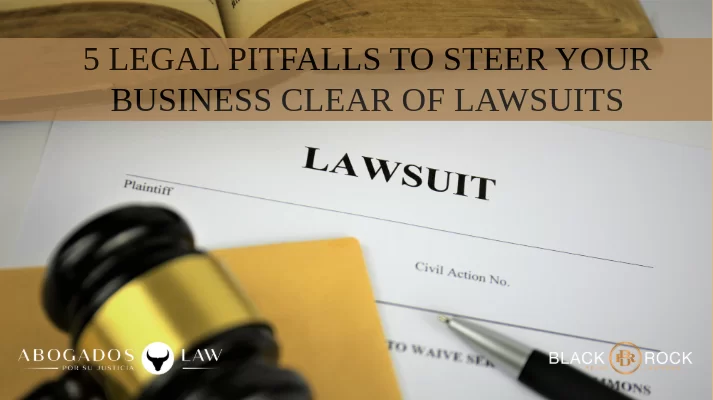What Are All of the Important Terms of a Commercial Lease for My Business?
Signing a commercial lease is a big commitment—and one of the most critical legal documents your business will ever sign. Whether you’re opening your first storefront, expanding to a new office, or moving into a warehouse, the lease terms you agree to can directly impact your bottom line, your flexibility, and your legal exposure.
Before you sign anything, you should understand the key terms of a commercial lease—and why it’s smart to have a Florida business lawyer review the agreement.
Here’s a breakdown of the most important commercial lease terms every business owner should know.
1. Rent and Rent Increases (Base Rent + Escalations)
Your lease will state:
- Base rent (monthly or annual amount)
- Whether rent increases annually (e.g., 3% increase or CPI-based)
- If there are additional charges (see CAM below)
Tip: Be cautious of leases that escalate aggressively or tie rent to undefined “market rates.”
2. Lease Term and Renewal Options
This defines:
- The length of the lease (e.g., 3, 5, or 10 years)
- Whether you have options to renew (and at what rate)
- Conditions for early termination
A business attorney can help you negotiate renewal terms that favor your business.
3. Triple Net (NNN) vs. Gross Lease
In a Triple Net Lease, the tenant pays:
- Property taxes
- Insurance
- Common area maintenance (CAM)
In a Gross Lease, the landlord covers these expenses. Understanding the lease type is critical to estimating your true cost of occupancy.
4. CAM Charges (Common Area Maintenance)
CAM charges can include:
- Landscaping
- Parking lot maintenance
- Property management fees
- Utilities for common areas
Have your attorney review how CAM is calculated and whether you’re responsible for capital improvements or major repairs.
5. Use Clause and Exclusive Rights
The Use Clause limits how you can use the space. Make sure it:
- Covers your current and future business activities
- Doesn’t prohibit related services you may want to offer
Ask about exclusive rights—can the landlord lease space to your competitor in the same plaza?
6. Tenant Improvements (TI) and Build-Outs
Will the landlord provide a tenant improvement allowance to help you build out the space?
Make sure your lease:
- Details who pays for improvements
- Outlines approval processes
- Clarifies what must be removed at move-out
7. Personal Guarantee or Security Deposit
Some landlords require you (or your LLC) to sign a personal guarantee, making you personally responsible for the lease.
A business lawyer may help you:
- Negotiate a cap or time limit
- Avoid a guarantee entirely
- Reduce or eliminate the security deposit
8. Maintenance and Repair Responsibilities
Your lease should clarify:
- Who fixes HVAC systems, plumbing, roof, and structural elements
- What happens if a repair causes downtime
- Who handles emergency repairs and utility issues
9. Default and Remedies
What happens if:
- You pay rent late?
- You breach a term of the lease?
Look for grace periods, late fees, and opportunities to cure. You’ll also want to know your rights if the landlord breaches their obligations.
10. Assignment and Subletting
Can you:
- Transfer the lease if you sell your business?
- Sublease the space if you outgrow it?
If the lease restricts these options, you may lose flexibility later. An attorney can help you negotiate rights that support your long-term growth.
Don’t Sign a Commercial Lease Without Legal Review
Commercial leases are written to protect landlords—not tenants. At Black Rock Trial Lawyers we help Florida business owners review, negotiate, and revise lease agreements to ensure they’re fair, clear, and aligned with your business goals.
📞 Contact us today to schedule a consultation with a Florida commercial lease attorney before you sign your next lease.
Representing People + Businesses Throughout Florida
Offering Business + Entrepreneurship Legal Services:
1:1 Consultations
A La Carte Legal Services
“BELAW” Business & Entrepreneurship Law Advisory Program
Master Sessions
Civil Litigation Services



